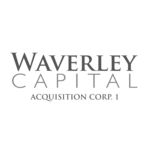Unicorn IPO Report also reveals “herd mentality” among unicorn
companies in stock class structure, board structure and composition,
time-to-market, and executive compensation disclosure
RESTON, Va.–(BUSINESS WIRE)–Unicorn companies went public at a significantly higher clip in 2018,
according to a new report today from compliance research firm, Intelligize.
The report, ,
found a 54 percent increase in 2018 unicorn IPOs over 2017, with the
20 IPOs outpacing the number of unicorn offerings in 2016 and 2017
combined (18). The report uses public company filings and other data
from the Intelligize research platform to examine the activities of
unicorns entering the public markets in a variety of different areas,
including corporate governance, time-to-market, fees, accounting and
other emerging growth issues.
“Two major IPOs – Snap’s challenging Q1 2017 offering, and Dropbox’s
well-regarded Q1 2018 IPO – loom large as we examine unicorn IPO
trends,” explained Rob Peters, a senior director at Intelligize and one
of the report’s co-authors. “After Snap, we saw some unicorns abandon
their IPO plans, while Dropbox’s public offering led to a rebound, which
many experts believe will continue through 2019. If the IPO plans
already disclosed by Lyft and Slack are any indication, they may be
right.”
The Intelligize report also revealed something of a “herd mentality” for
unicorns, finding concerted efforts across the board to maintain company
control despite the transition to the public markets. This is evidenced
in 19 out of 20 unicorns in 2018 going public with classified boards,
despite the broader market trend of declassification. Dropbox, the only
current holdout, says it will also classify its board once its Class B
shareholders – essentially the co-founders and the lead venture capital
investors – lose company control.
Also illustrative of the desire for unicorn leadership to maintain
company control is the fact that 30 percent of unicorns went public with
a multi-class stock structure – a high percentage given the resistance
that is beginning to form against the multi-class approach. S&P Dow
Jones Indices and FTSE Russell, for instance, now exclude some
dual-class shares, meaning that passive funds tracking that index are
not obligated to buy its stock.
“The use of board classification and capital structure by leadership to
maintain control of a public company have become more prevalent since
technology companies like Facebook, Alphabet, Square and others started
a groundswell,” Peters said. “Our findings related to classified boards
are particularly interesting, given that in the broader markets,
classified boards are often criticized by corporate governance
advocates.”
The Intelligize report also found that more than half of unicorns (11)
made their public market debuts with fewer women board members than the
Russell 3000 average (18 percent). Sixty percent of unicorns had either
one or zero female directors immediately post-IPO, including two
California-based companies, Elastic and Guardant Health, which had zero.
As public companies they will now be required to conform to a California
law mandating that companies incorporated or headquartered in the state
have women on their boards of directors. At the other end of the
spectrum, the boards of Eventbrite and SVMK (the parent of SurveyMonkey)
were 44 percent and 40 percent female, respectively.
Methodology
Analysis of Initial Public Offerings for Companies Valued at $1
Billion or Higher is based on information contained in the
Intelligize platform as of February 1, 2019.
There is no one universally accepted definition of a “unicorn” company.
This means that research produced on the topic is often inconsistent
based on the criteria used to classify a unicorn. For the purposes of
this report, a Unicorn is defined as a company:
- Valued at $1 billion or greater at the time of IPO
- That is venture-capital backed
- Listing common stock or a class of common stock (not ADRs)
-
Listing on the NYSE or NASDAQ, with more than 50 percent of
outstanding voting securities held by U.S. residents -
With registration effective from January 1, 2016 through December 31,
2018
About Intelligize
Intelligize is the leading provider of best-in-class content, exclusive
news collections, regulatory insights, and powerful analytical tools for
compliance and transactional professionals. Intelligize offers a
web-based research platform that ensures law firms, accounting firms,
corporations and other organizations stay compliant with government
regulations, build stronger deals and agreements, and deliver value to
their shareholders and clients. Headquartered in the Washington, DC
metro area, Intelligize serves Fortune 500 companies, including
Starbucks, IBM, Microsoft, Verizon and Walmart, as well as many of the
top global law and accounting firms. In 2016, Intelligize became a
wholly-owned subsidiary of LexisNexis®, a leading global provider of
content-enabled workflow solutions designed specifically for
professionals in the legal, risk management, corporate, government, law
enforcement, accounting and academic markets. For more information,
visit www.intelligize.com.
Contacts
Jason Milch
Baretz+Brunelle
312.379.9406
jmilch@baretzbrunelle.com



